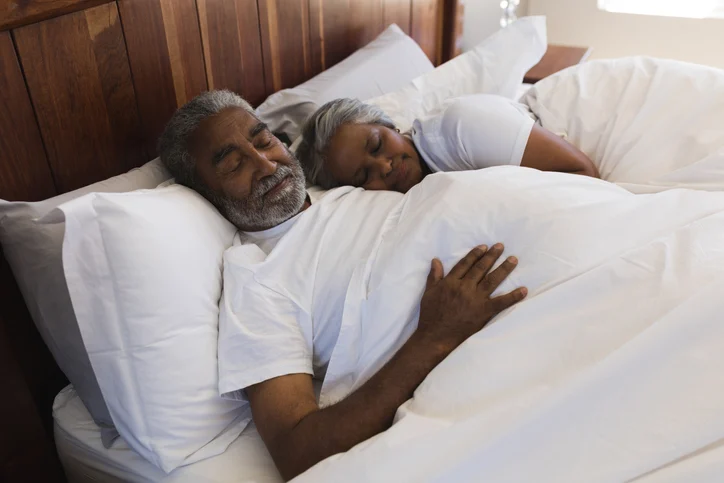Sleeping Myths
When Ruth was raising her three kids, she often went to bed before 10 PM and woke up by 5:30 AM to get them up and ready for school. Now that she’s retired, she’s more of a night owl, and often doesn’t fall asleep until after midnight.
There’s a popular myth that says older people need less sleep. However, per the National Institute on Aging, older adults need the same amount of sleep as all adults — 7 to 9 hours per night. The importance and benefits of a good night’s sleep should not be overlooked. Poor sleep has been associated with elevated C-reactive protein (CRP), which are related to diabetes and cardiovascular disease. Poor sleep can also contribute to memory problems, irritability, depression, and falling.
Developing Sleep Hygiene
Improving sleep requires good sleep hygiene.
Here are a few tips to develop or improve your sleep hygiene:
- Follow a regular sleep schedule (go to bed at the same time every night and wake up at the same time.) Try to adhere to this on weekends and when traveling, too.
- Avoid taking late afternoon naps.
- Use your bedroom for sleep. Don’t watch television, use your tablet, laptop, or phone in bed. The light from your devices makes it difficult to fall asleep.
- As you prepare for bed, use low lighting that provides a warm glow.
- Keep your bedroom cool and quiet at night.
- Don’t exercise for 3 hours before bed.
- Avoid eating large meals close to bedtime.
- Don’t have caffeine (coffee, teas, soda, chocolate) late in the day.
- Avoid alcohol, but if you do have a drink, make sure it is not close to bedtime.
- Relaxation and breathing exercises relax the body and the mind and prepare one for sleep.
If you’ve tried the above tips to improve your sleep and are still not achieving adequate sleep, it’s important you speak to your medical provider to discuss if there are underlying conditions causing your insomnia. Medical conditions can include sleep apnea (cause short pauses in breathing while sleeping), and movement disorders (restless leg syndrome, rapid eye movement sleep behavior disorder).
Improving your sleep has been shown to boost mood and improve concentration and memory. Quality sleep reduces the risk of high blood pressure, diabetes and obesity, and strengthens the immune system. Working on improving your sleep through practicing healthy sleep hygiene or working with your doctor can improve quality of life.
Ruth has decided to change her habits and is getting to bed earlier. She’s also trying to wake up each morning around the same time.
If you need more support, give Homethrive a call at (844) 343-8714 (TTY 711).
